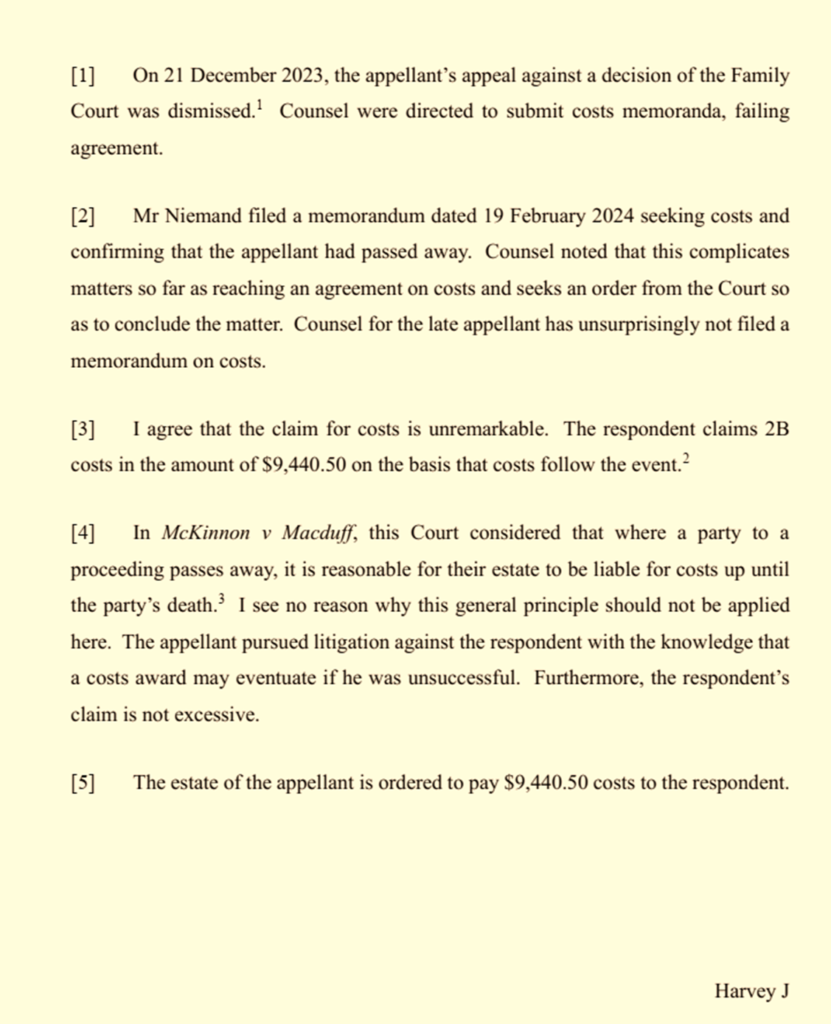Costs against a deceased person by the High Court in New Zealand.

This case about slapping costs on a dead person in New Zealand’s High Court seems pretty iffy for a few reasons: read the screenshot of the case below:

- No One’s There to Speak Up: The person who passed away can’t exactly speak up for themselves in court, especially when it comes to dealing with costs. It’s not surprising that their lawyer didn’t file anything about costs, but it leaves the dead person kind of defenseless.
- Is It Fair? Putting costs on a dead person’s estate doesn’t seem quite fair. That money might be needed for other stuff, like giving to family or whoever’s supposed to get it after the person’s gone. It could mess things up financially for the people left behind.
- Can’t Argue Back: Without anyone to argue on behalf of the deceased, it’s hard for their estate to fight back against these costs. It’s like they’re stuck with whatever the court decides, even if it doesn’t seem right.
- Think About the Situation: Sure, the court mentioned a past case to justify this, but every situation is different. They should really think about things like how much money the estate has, what the lawsuit was about, and any special circumstances before just slapping on costs.
- Be Kind to Grieving Families: Dealing with legal stuff after someone dies is tough enough. Courts should really be more sensitive and understanding about how hard it is for the family and friends left behind.
So, while the court might have the legal go-ahead to do this, it doesn’t mean it’s the best move. They should try to be fair and compassionate to everyone involved
In conclusion, while the court’s decision to award costs against the deceased’s estate may be legally permissible under existing precedent, it raises ethical and practical concerns regarding fairness, representation, and the sensitivity to the circumstances of the deceased and their family. Courts should strive to balance the interests of all parties involved and ensure that justice is administered with compassion and integrity.
![]()


In fairness, both the interests and obligations of the appelant persists after death. Their lawyer was meant to make the case against costs, instructed by the estate. It follows that an appeal against costs and an application for a stay of judgment is possible.
Conversely, the other party’s interests didn’t pass away.
Simple decision based on case law Submissions on behalf of the deceased would be helpful